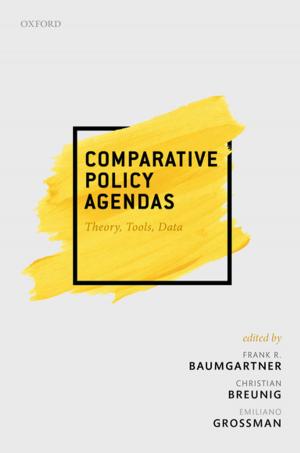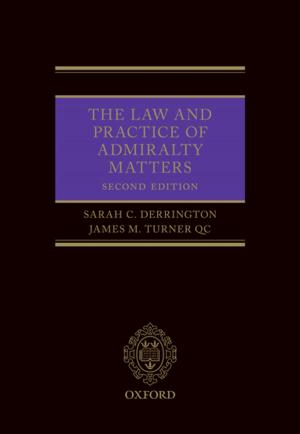Justice and Natural Resources
An Egalitarian Theory
Nonfiction, Social & Cultural Studies, Political Science, Politics, History & Theory, Science & Nature, Nature| Author: | Chris Armstrong | ISBN: | 9780192527578 |
| Publisher: | OUP Oxford | Publication: | May 5, 2017 |
| Imprint: | OUP Oxford | Language: | English |
| Author: | Chris Armstrong |
| ISBN: | 9780192527578 |
| Publisher: | OUP Oxford |
| Publication: | May 5, 2017 |
| Imprint: | OUP Oxford |
| Language: | English |
Struggles over precious resources such as oil, water, and land are increasingly evident in the contemporary world. States, indigenous groups, and corporations vie to control access to those resources, and the benefits they provide. These conflicts are rapidly spilling over into new arenas, such as the deep oceans and the Polar regions. How should these precious resources be governed, and how should the benefits and burdens they generate be shared? Justice and Natural Resources provides a systematic theory of natural resource justice. It argues that we should use the benefits and burdens flowing from these resources to promote greater equality across the world, and share governance over many important resources. At the same time, the book takes seriously the ways in which particular resources can matter in peoples lives. It provides invaluable guidance on a series of pressing issues, including the scope of state resource rights, the claims of indigenous communities, rights over ocean resources, the burdens of conservation, and the challenges of climate change and transnational resource governance. It will be required reading for anyone interested in natural resource governance, climate politics, and global justice.
Struggles over precious resources such as oil, water, and land are increasingly evident in the contemporary world. States, indigenous groups, and corporations vie to control access to those resources, and the benefits they provide. These conflicts are rapidly spilling over into new arenas, such as the deep oceans and the Polar regions. How should these precious resources be governed, and how should the benefits and burdens they generate be shared? Justice and Natural Resources provides a systematic theory of natural resource justice. It argues that we should use the benefits and burdens flowing from these resources to promote greater equality across the world, and share governance over many important resources. At the same time, the book takes seriously the ways in which particular resources can matter in peoples lives. It provides invaluable guidance on a series of pressing issues, including the scope of state resource rights, the claims of indigenous communities, rights over ocean resources, the burdens of conservation, and the challenges of climate change and transnational resource governance. It will be required reading for anyone interested in natural resource governance, climate politics, and global justice.















